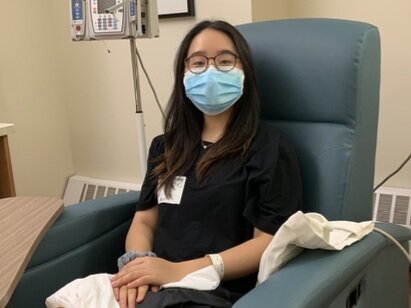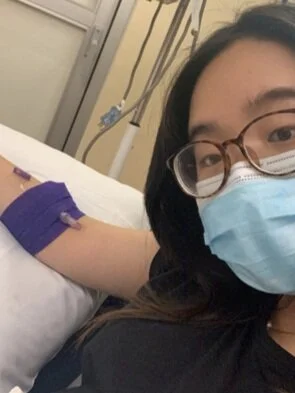This article is by Savannah Snyder from Canada.
Photo by Nothing Ahead from Pexels.
My life has been changing so insanely fast – from moving out of my childhood home to school three hours away, from living with six other people to now living alone, to a new city, apartment, school, and friends. Change can be amazing – pursuing your goals, growing as a person, and finding your place in this world. But, with change, also brings feelings of anxiety, nervousness, and stress. Change and stress often wreak havoc on my body and cause my Crohn’s Disease to make noticeable little flare-ups. With change comes unknowns, and as a very organized person, this causes my mind to wander. I try to remind myself that everything happens for a reason, and if I enter this new experience with a good and hopeful attitude, I’ll have a great experience.
I moved several weeks ago and am remembering how important self-care is to ensure my body feels safe, calm, and happy. These past few weeks, I’ve noticed my stomach pains starting to increase along with feelings of fatigue and nausea. Whenever I notice negative changes with my stomach, my stress skyrockets and I become petrified that a flare will take over my life. Although I do have an upcoming doctor’s appointment to address these issues, I am focusing on caring for my body with self-care measures in the meantime. To ensure I protect my stomach at all costs and continue to nourish my body, I am treating it with insane kindness in thanks for carrying me around each day and allowing me to live a life with so much love and happiness.
Today, I’ll share some self-care tips that I have undertaken while experiencing change.
Self-Care Tips
Sleep 8+ hours
A refreshing and long sleep helps my body feel so much better. I always try to get a long sleep in once a week!
Nourishing Foods
Eat foods that help you feel your best, this differs for everyone, but I always make sure to focus on eating enough of the foods I know best settle with my sensitive stomach!
Friends and Family
Making time for talking to friends and family is so important. No matter how busy you are, having an outlet is so important. Whether that be venting, doing activities together, or just hanging out.
Journaling
Whenever I’m undergoing change, I love to pour out all my thoughts onto paper. This helps me clear my head and feel refreshed. Although I procrastinate journaling beforehand, I love how I feel afterwards.
Activities
What makes you feel good? Getting your nails done, putting on a face mask, going for a walk, or doing some yoga, whatever activity you enjoy and feel relaxed doing, do it! These activities normally switch up for me and I try to be intuitive with how my mind and body are feeling. Whether that be sometimes going for a walk or doing a yoga flow and others I’m throwing on a movie and laying on the couch in my sweats!



















